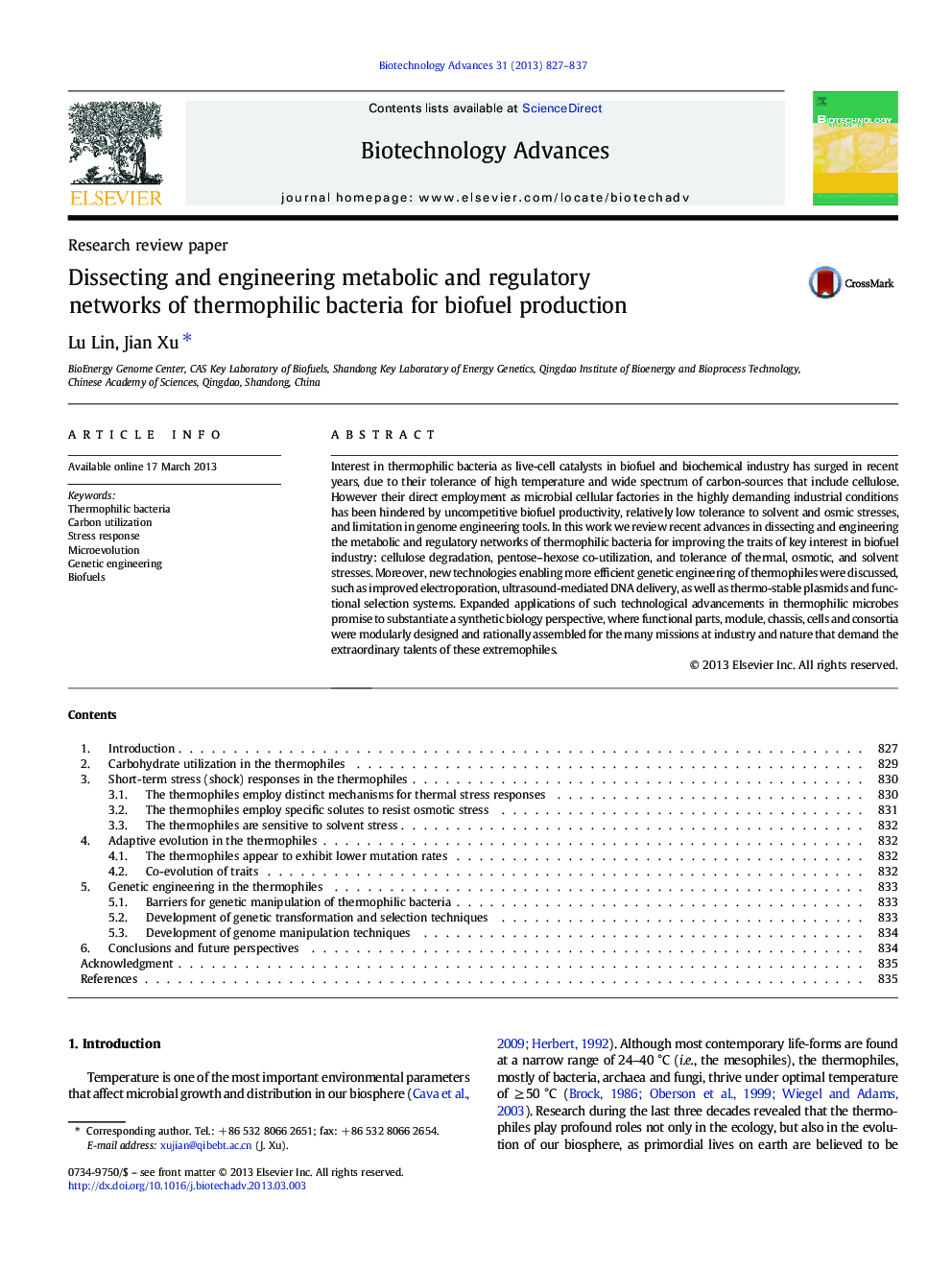| Article ID | Journal | Published Year | Pages | File Type |
|---|---|---|---|---|
| 14346 | Biotechnology Advances | 2013 | 11 Pages |
Interest in thermophilic bacteria as live-cell catalysts in biofuel and biochemical industry has surged in recent years, due to their tolerance of high temperature and wide spectrum of carbon-sources that include cellulose. However their direct employment as microbial cellular factories in the highly demanding industrial conditions has been hindered by uncompetitive biofuel productivity, relatively low tolerance to solvent and osmic stresses, and limitation in genome engineering tools. In this work we review recent advances in dissecting and engineering the metabolic and regulatory networks of thermophilic bacteria for improving the traits of key interest in biofuel industry: cellulose degradation, pentose–hexose co-utilization, and tolerance of thermal, osmotic, and solvent stresses. Moreover, new technologies enabling more efficient genetic engineering of thermophiles were discussed, such as improved electroporation, ultrasound-mediated DNA delivery, as well as thermo-stable plasmids and functional selection systems. Expanded applications of such technological advancements in thermophilic microbes promise to substantiate a synthetic biology perspective, where functional parts, module, chassis, cells and consortia were modularly designed and rationally assembled for the many missions at industry and nature that demand the extraordinary talents of these extremophiles.
